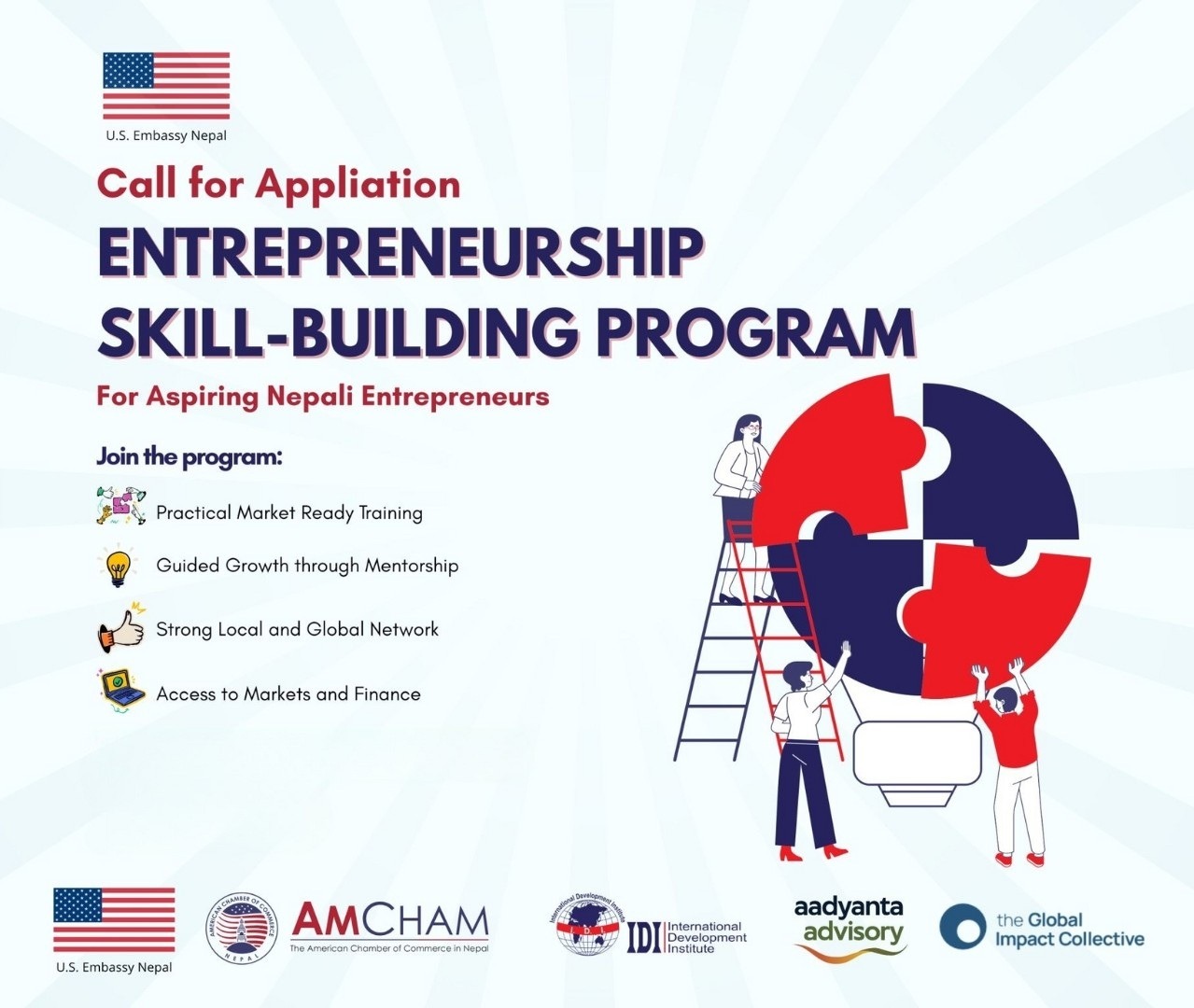In Nepal’s dynamic business landscape, MSMEs are major contributors to the country’s economic growth, supporting employment, innovation, and resilience.
Amid the difficulties of limited resources and increasing competition, small businesses in Nepal often face challenges in successfully selling their products or services to the targeted group.
As there is no particular marketing formula for success, as a business owner, you should constantly try out new strategies to take advantage of new growth opportunities.
Emerging technological advances have presented businesses to reshape their overall business strategy. Regardless of their size, most companies are adopting technologies along with digital marketing strategies to survive in this competitive market.
For instance, most MSMEs rely on different marketing strategies to place their products in the marketplace. However, the COVID-19 outbreak changed the way products are marketed. Businesses shifted from traditional to digital marketing strategies and promoted their products and services using different social media platforms.
Let’s dive into some of the most successful marketing strategies that provide your business with a roadmap to thrive in a competitive market.
Say no to hard selling
The way customers purchase products has evolved. Cold calling and sleazy sales strategies are no longer used. The simplicity with which customers may look up information about your product and brand online has given them more power. So, rather than taking a blatantly straight sales strategy, explain to your audience why they should buy your products or services.
Making this information transparent on your website and social media platforms can help your customers decide whether to buy or not.
Advertise on the right social media platform
It is important that you choose the right social media platform to advertise your products — depending on what you are offering and who your target audience is and refine your advertising to better meet their needs. For instance, if you are planning to sell pickles, Facebook and TikTok may be the right platform to pivot on.
For thrift stores or Gen-Z clothing or a cafe shop, Instagram may be where you want to focus your advertising. So make sure to know your audience clearly and concisely and where they are primarily concentrated on.
Tell your brand story
Storytelling about brands has become an effective way to engage customers on a deeper level in the constantly changing world of marketing.
Being genuine, connecting with your audience’s emotions, and presenting how you could improve their experience are the key elements of a successful brand story. Your brand story can greatly benefit from the social causes you support, such as promoting environmental conservation, education, healthcare, or any other area that aligns with your values and those of your community.
You can organize events such as fundraising events, awareness campaigns, volunteer programs, etc. Further, coordinate with local nonprofit groups that are committed to addressing needs in the community.
You can co-host events or initiatives that have a beneficial impact by collaborating. If promoting environmental sustainability makes a difference to your brand, organize events to do so. Your brand will be positioned as ecologically conscious and attract attendees who share similar beliefs if you incorporate sustainability into your events. This strategy enables you to make a difference while creating deep connections with socially conscious people who value your dedication to giving back.
For instance, Vama is a Nepali fashion brand that sells eco-friendly products. To create products, Vama uses eco-friendly materials, including cotton linen, khadi, and pure cotton. Vama has motivated its customers to buy its product, as they have a storyline that shows how its brand has focused on improving the environment through selling eco-friendly products. You can always use images, videos, user-generated content, and customer feedback to share your brand story.
Go beyond just content
“Content is king, but don’t forget that simplicity is queen.”
When designing your marketing plan, content and simplicity should go hand in hand. If you fail to create simple content, you might fail to deliver the right message to your audience.
Other strategies, like search engine optimization (SEO) and link building, must always be used with content marketing. Most MSMEs invest in SEO to get that top spot on Google search results. This is where you need to focus on keyword planning, link building, image optimization, etc. Here are a few ideas that will help you ace your SEO game:
- Create quality content that your targeted audience can share.
- Use relevant keywords.
- Add links from reputable third-party websites to the pages you created.
- Generate links using social media to drive users to your website.
- Use optimized images to reduce the page load.
Use word of mouth and collaborate with influencers
Influencers with an active following among the target audience and who share the same values as your business are ideal. Nepali brands are collaborating with social media influencers to promote their products and services to a large audience.
For instance, small local Nepali restaurants collaborate with food bloggers on social media, mostly Instagram and Tiktok. They provide food reviews, rate the hospitality, and update videos showing the restaurant’s ambiance to attract more customers. Influencer marketing is one of the best marketing strategies if you are struggling to retain your customers.
Engage in the social media arena
Having a social media account is not enough. Engaging with your audience through different activities and communicating with them matters the most nowadays. You can use the live video streaming and story features on social media sites like Instagram, Facebook, or Tiktok to provide exclusive behind-the-scenes content, in-person Q&As, product demos, or event news.
Your audience will feel more connected to you. Encourage your audience to share and provide feedback related to your brand. Share user-generated content on your social media accounts to show your audience that they are valued. Offer them discounts, deals, and giveaways to make them genuine buyers.
Embrace email marketing
Email marketing is an effective strategy for MSMEs, despite the growth of social media. Create a list of interested customers’ email addresses and routinely send them newsletters, special offers, updates, and information that is customized for them. Create intriguing subject lines. Email marketing promotes brand loyalty, develops relationships with customers, and encourages customers to return.
Not all of the strategies listed above may be appropriate for your business, but it is still practical to combine them to see which ones work best for you. As you receive feedback from your audience, be open-minded, flexible, and willing to adapt.
Don’t forget your costs (time, energy, and of course money) and priorities but make sure your product and brand are visible and heard.














